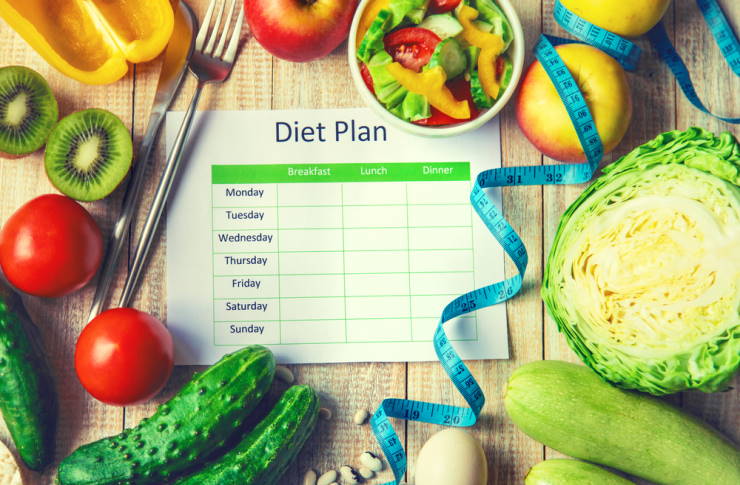Colitis Flare-Up: What to Eat
A colitis flare-up can bring intense discomfort, fatigue, and confusion about which foods to eat or avoid. During these times, carefully adjusting your diet is essential for managing symptoms and supporting recovery. Knowing how certain foods affect your gut may help reduce inflammation and improve your quality of life over time.

Why Does Diet Matter for Colitis Sufferers?
For individuals with ulcerative colitis, diet plays a crucial role in managing symptoms and maintaining overall health. The foods you consume can directly impact inflammation levels in your digestive tract, potentially triggering or alleviating flare-ups. A well-planned diet can help reduce irritation to the intestinal lining, promote healing, and provide essential nutrients that may be lacking due to malabsorption issues common in colitis patients.
Moreover, certain foods can exacerbate symptoms such as diarrhea, abdominal pain, and bloating, while others may help soothe the digestive system. Understanding the relationship between diet and colitis is key to developing a personalized nutrition plan that supports your body’s needs during both flare-ups and periods of remission.
What Are Common Colitis Trigger Foods?
Identifying and avoiding trigger foods is crucial for managing colitis symptoms. While individual triggers may vary, some common foods that often cause problems for colitis sufferers include:
-
High-fiber foods: Raw vegetables, whole grains, and nuts can be difficult to digest during a flare-up.
-
Dairy products: Lactose intolerance is common among colitis patients, making milk and cheese problematic.
-
Spicy foods: These can irritate the digestive tract and worsen inflammation.
-
Caffeine and alcohol: Both can stimulate bowel movements and increase dehydration.
-
Fatty or greasy foods: These can be hard to digest and may cause diarrhea.
It’s important to note that trigger foods can differ from person to person. Keeping a food diary can help you identify your specific triggers and adjust your diet accordingly.
Which Foods Are Best for Colitis Remission?
During periods of remission, when symptoms are less severe or absent, focusing on nutrient-dense foods can help maintain your health and potentially extend the time between flare-ups. Some foods that are generally well-tolerated and beneficial during remission include:
-
Lean proteins: Chicken, fish, and tofu can provide essential amino acids without irritating the gut.
-
Low-fiber fruits: Bananas, melons, and cooked fruits are often easier to digest.
-
Probiotics: Yogurt, kefir, and fermented foods can support gut health.
-
Omega-3 rich foods: Salmon, sardines, and flaxseeds may help reduce inflammation.
-
Cooked vegetables: Steamed or roasted vegetables are often better tolerated than raw ones.
Gradually introducing a variety of nutrient-rich foods during remission can help ensure you’re getting the vitamins and minerals your body needs to stay healthy.
Which Vegetables Could Be Problematic?
While vegetables are generally considered healthy, some can be problematic for colitis sufferers, especially during flare-ups. Vegetables that may cause issues include:
-
Cruciferous vegetables: Broccoli, cauliflower, and Brussels sprouts can cause gas and bloating.
-
High-fiber vegetables: Raw carrots, celery, and corn can be difficult to digest.
-
Nightshade vegetables: Tomatoes, peppers, and eggplants may trigger inflammation in some people.
-
Onions and garlic: These can cause digestive discomfort for some individuals.
-
Beans and legumes: High in fiber and can lead to gas and bloating.
If you find these vegetables troublesome, try cooking them thoroughly or pureeing them to make them easier to digest. Alternatively, you can explore low-fiber vegetable options that are gentler on the digestive system.
What Foods Can I Eat During Colitis Flares (Besides Liquids)?
During a colitis flare-up, it’s common to rely on liquids to stay hydrated and give your digestive system a break. However, as you start to feel better, you can gradually introduce solid foods that are easy to digest and less likely to irritate your gut. Some options include:
-
White rice: Easy to digest and can help firm up stools.
-
Low-fiber bread: White bread or sourdough are often better tolerated than whole grain varieties.
-
Lean proteins: Well-cooked, skinless chicken or fish can provide necessary nutrients without causing irritation.
-
Eggs: A good source of protein that’s usually well-tolerated.
-
Smooth nut butters: Peanut or almond butter (without chunks) can provide protein and healthy fats.
-
Cooked, peeled fruits: Applesauce or ripe bananas can offer nutrients and are easier to digest.
Remember to introduce new foods slowly and in small amounts to see how your body reacts. If you experience any discomfort, return to a more restricted diet and consult your healthcare provider.
In conclusion, managing your diet during colitis flare-ups and remission periods is crucial for symptom control and overall well-being. By understanding trigger foods, focusing on nutrient-rich options during remission, and choosing easily digestible foods during flares, you can better navigate the challenges of living with ulcerative colitis. Always work closely with your healthcare provider or a registered dietitian to develop a personalized nutrition plan that meets your specific needs and supports your journey towards better digestive health.
This article is for informational purposes only and should not be considered medical advice. Please consult a qualified healthcare professional for personalized guidance and treatment.




